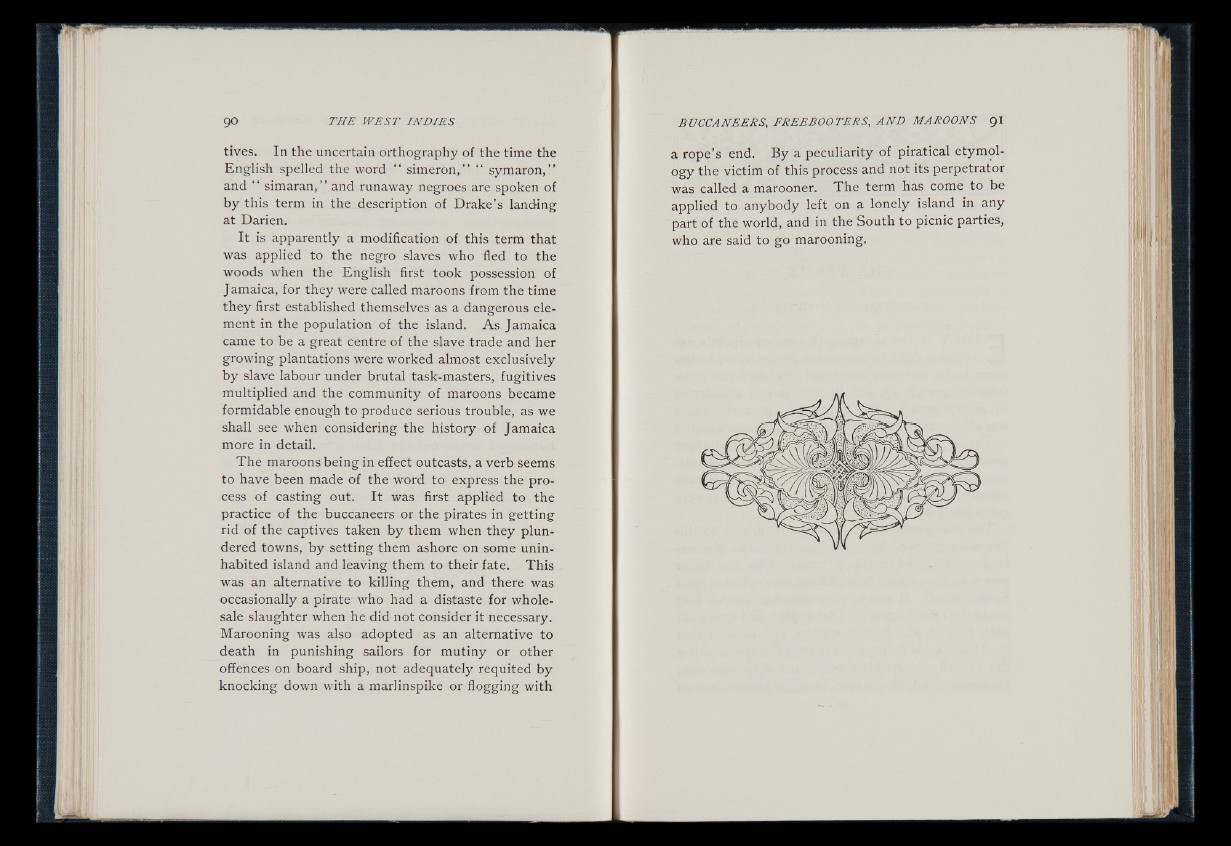
tives. In the uncertain orthography of the time the
English spelled the word “ simeron,” “ symaron,”
and “ simaran,” and runaway negroes are spoken of
b y this term in the description of Drake’s landing
at Darien.
I t is apparently a modification of this term that
was applied to the negro slaves who fled to the
woods when the English first took possession of
Jamaica, for they were called maroons from the time
they first established themselves as a dangerous element
in the population of the island. A s Jamaica
came to be a great centre of the slave trade and her
growing plantations were worked almost exclusively
by slave labour under brutal task-masters, fugitives
multiplied and the community of maroons became
formidable enough to produce serious trouble, as we
shall see when considering the history of Jamaica
more in detail.
T he maroons being in effect outcasts, a verb seems
to have been made of the word to express the process
of casting out. I t was first applied to the
practice of the buccaneers or the pirates in getting
rid of the captives taken by them when they plundered
towns, by setting them ashore on some uninhabited
island and leaving them to their fate. This
was an alternative to killing them, and there was
occasionally a pirate who had a distaste for wholesale
slaughter when he did not consider it necessary.
Marooning was also adopted as an alternative to
death in punishing sailors for mutiny or other
offences on board ship, not adequately requited by
knocking down with a marl inspike or flogging with
a rope’s end. By a peculiarity of piratical etymology
the victim of this process and not its perpetrator
was called a marooner. The term has come to be
applied to anybody left on a lonely island in any
part of the world, and in the South to picnic parties,
who are said to go marooning.